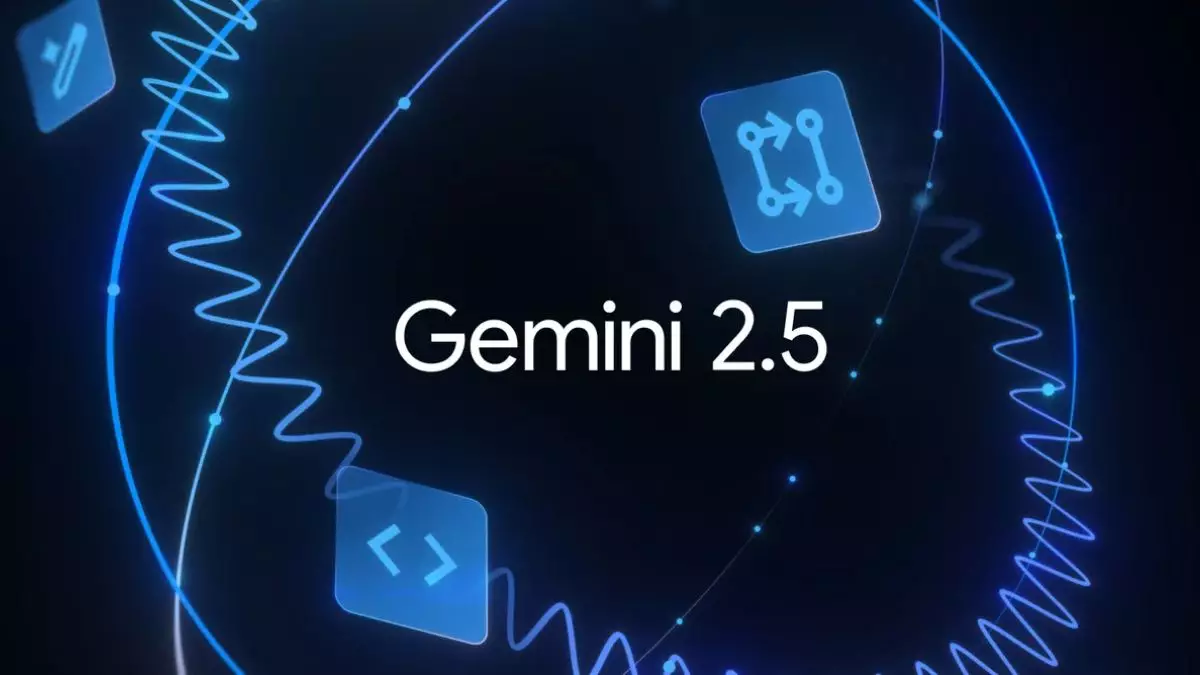On Tuesday, Google accelerated its march into the future of artificial intelligence with the unveiling of the Gemini 2.5 family of AI models, marking a significant leap towards making advanced AI more accessible and efficient. This move serves as a bastion of innovation in the tech industry, offering users both free and premium tiers unprecedented access to powerful AI capabilities. With the introduction of Gemini 2.5 Pro and Gemini 2.5 Flash, Google is not just responding to market competition—it’s redefining the landscape of what AI can achieve.
The realm of artificial intelligence has often been characterized by its exclusivity. High-performance models typically come with subscription fees that the average consumer can find prohibitive. However, with the availability of Gemini 2.5 Pro on the free tier, Google is making strides to democratize access to cutting-edge technology. This is a powerful statement in a time when AI tools can often feel like private clubs for the elite. By lowering barriers to entry, Google is ensuring that these transformative tools are available not only to corporations but also to individual users and budding innovators.
Moving Beyond Glitches: Stability Comes First
In the fast-paced world of technology, the transition from a beta to a stable version of a product is a critical milestone, especially for AI models that require a high degree of reliability. The Gemini 2.5 family has successfully emerged from its preview phase, one that was fraught with glitches and unpredictable behavior. During the preview phase, users were like beta testers; their feedback was essential in fine-tuning those initial rough edges. Now, with a stable launch, the Gemini AI models promise to deliver enhanced performance devoid of prior erraticities, allowing users to utilize its full capabilities without the fear of encountering frustrating errors.
Yet, as we celebrate this advancement, it’s essential to remain aware of the limitations that persist, particularly within the free tier. While users will receive access to the same model as paid users like Google AI Pro, they will be subjected to reduced daily limits. This tiered access may foster a sense of inequality. It’s perplexing that even while striving for inclusiveness, Google preserves certain privileges for its paying clientele. Why should monetary input dictate the breadth of usage? In a landscape aiming for equity, such practices should be scrutinized.
Speed Meets Efficiency with Flash-Lite
The introduction of Gemini 2.5 Flash-Lite further exemplifies Google’s commitment to operational efficiency. Touted as the fastest AI model from the tech giant, Flash-Lite is poised to handle real-time tasks, bridging gaps in fields like coding, mathematics, and reasoning. In an age where time truly is money, this low-latency model could potentially revolutionize how businesses operate and how individuals access information.
It’s admirable that Google continues to push boundaries in AI, yet the question lingers: is sheer speed prioritized at the cost of depth? With the promise of enhanced performance, there’s always a risk that Flash-Lite may prioritize quick answers over nuanced understanding. In an era of misinformation, the implications of rapid but superficial AI assistance could perpetuate a cycle of ignorance rather than enlightenment.
Integrating AI into Everyday Tasks
As Google integrates the Gemini 2.5 Flash-Lite and Flash models into everyday tools like Google Search, the implications for accessibility and enhanced learning become evident. The AI can now analyze user search histories, providing tailored answers that are not just responsive but also contextually aware. This leap toward personalization marks a growing trend where software doesn’t just respond to commands but anticipates needs. However, we must ponder the ethical ramifications of such deep integration.
What happens when our AI tools begin to over-rely on our search patterns, potentially replicating our biases? This isn’t just an optimization of service—it’s an intricate weave into the fabric of our daily lives. Companies must tread carefully, ensuring that while they make technology easier, they don’t inadvertently narrow the scope of information that users are exposed to.
Tremendous potential lies in the advancements offered by Google’s Gemini 2.5 family, but it raises critical societal questions about access, ethics, and the core purpose of AI as we integrate it more deeply into our lives. As we navigate this new frontier, it becomes imperative to push for transparency and fairness in technology, ensuring that AI remains a powerful tool for progress rather than a double-edged sword.


Leave a Reply